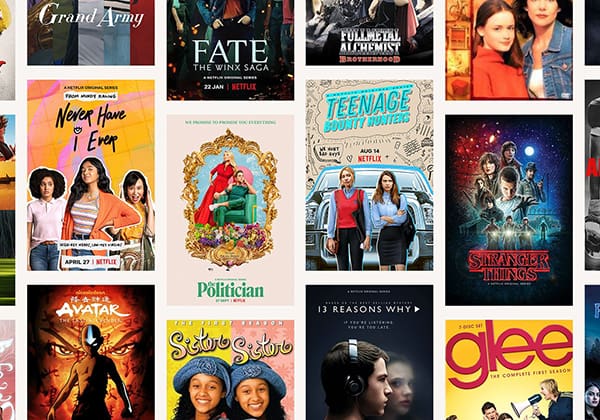Everyone loves a fairy tale romance. Movies and TV shows often represent love through dramatic gestures and swoon-worthy moments. But they also depict unhealthy relationships that lack boundaries, and reinforce rape culture. By normalising these patterns of behaviour, popular culture perpetuates rape culture, and blurs the understanding of consent. It contributes to the lack of understanding amongst young people about what constitutes emotional abuse and rape, and normalises toxic relationships.
Primarily aimed at teens, TV shows and movies like Gossip Girl, 500 Days of Summer, and Pretty Little Liars, significantly shape people’s understanding of relationships and appropriate boundaries. Younger viewers are less likely to have had discussions surrounding safe sex, consent, and healthy relationships, so they learn from what they see on-screen. Whilst schools around Australia require sex-ed from Year 6 onward, discussions of consent, rape, and relationships are far less common. These texts don’t just normalise inappropriate behaviour, they often glorify it. The Notebook, often claimed to be one of the most romantic movies ever made, is a clear example of this. Noah and Allie are depicted as a couple in love, however the relationship isn’t as perfect as it seems: Noah forces Allie to go on a date by threatening suicide, she knowingly cheats on her fiance, and they fight constantly (passion isn’t everything, people). Whilst people attempt to emulate these relationships, they fail to acknowledge the unhealthy behaviours they adopt in the process. The theme of passion and pursuit is also repeated throughout rom-coms. The refusal to accept the word ‘no’ is often seen as sweet — the guy is so in love he has to keep pursuing her. But in real life healthy relationships are built on acknowledging boundaries and accepting when the other person is uncomfortable. How can we expect people to learn these lessons when Hollywood tries so hard to sell toxic relationships?
Despite the growing recognition that these classic pop culture artefacts are ‘problematic,’ they’re still adored. Grease not only encourages young girls to completely change themselves in order to gain a guy’s attention, but also includes lines like ‘Did she put up a fight?’ Danny repeatedly forces himself onto Sandy and yet they still get together. Sixteen Candles had the ‘perfect’ guy that many-a-high-school girl would crush on. Yet Jake carelessly hands his drunk, unconscious girlfriend to another guy and tells him to ‘have fun.’
The lack of pushback, not only from characters within the shows, but from the general public reinforces the idea that these behaviours are acceptable. Recent discussions in Australia have increasingly addressed the need for more developed education on consent. But when the government releases ridiculous videos about milkshakes, which one are people more likely to understand?
Older movies aren’t the only ones reinforcing poor behaviour. Pretty Little Liars consistently had more than 2 million viewers an episode and yet the main romance of the show was between a student and her teacher relationship. Furthermore, Gossip Girl continued the pattern of ‘passionate’ partners, cheating spouses, even trading your girlfriend for a hotel like a piece of property. Mean Girls had teenagers fighting each other for a boy, betraying their friends in the process.
The role of popular culture in shaping and reflecting cultural attitudes is undeniable. Given that media is endlessly consumed, the pervasiveness of these messages is concerning. By depicting toxic behaviours as acceptable, it not only normalises them throughout society, but makes change difficult. Targeting messages like these at younger audiences is a dangerous way of shaping their behaviour and influencing their beliefs.
A recent shift towards recognising and calling out these ideas is important. Content like Moxie and Promising Young Woman, all represent a shift in pop culture towards representing rape culture as unacceptable. Nevertheless, more needs to be done to reinforce healthy relationships, the respect for others, and the understanding of the word ‘no’. It’s time to recognise that ‘picture perfect’ romances aren’t reality.





